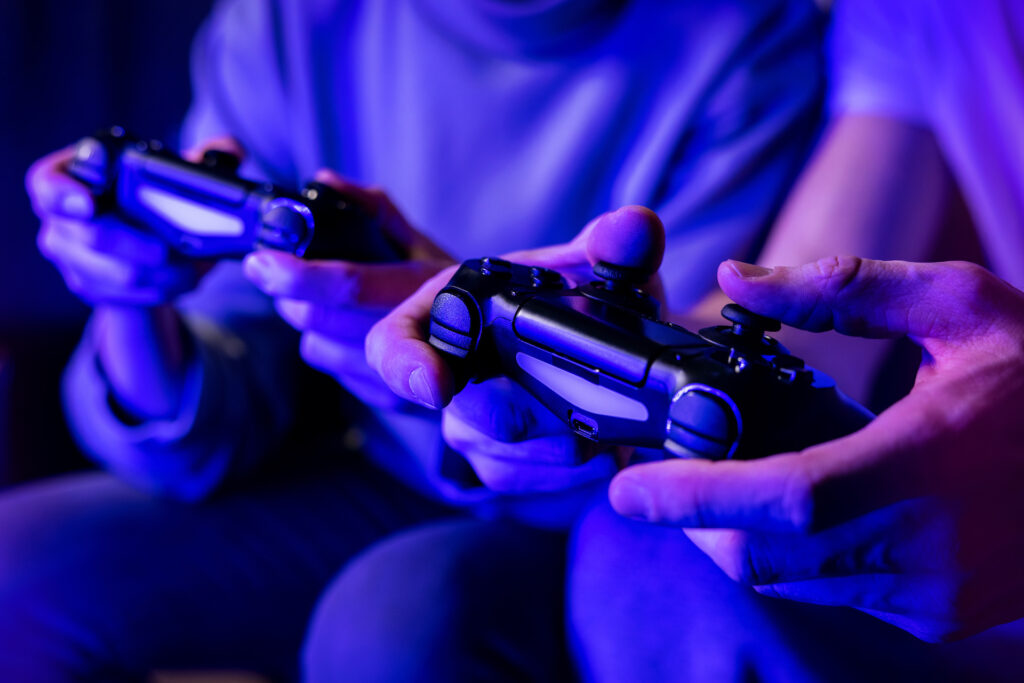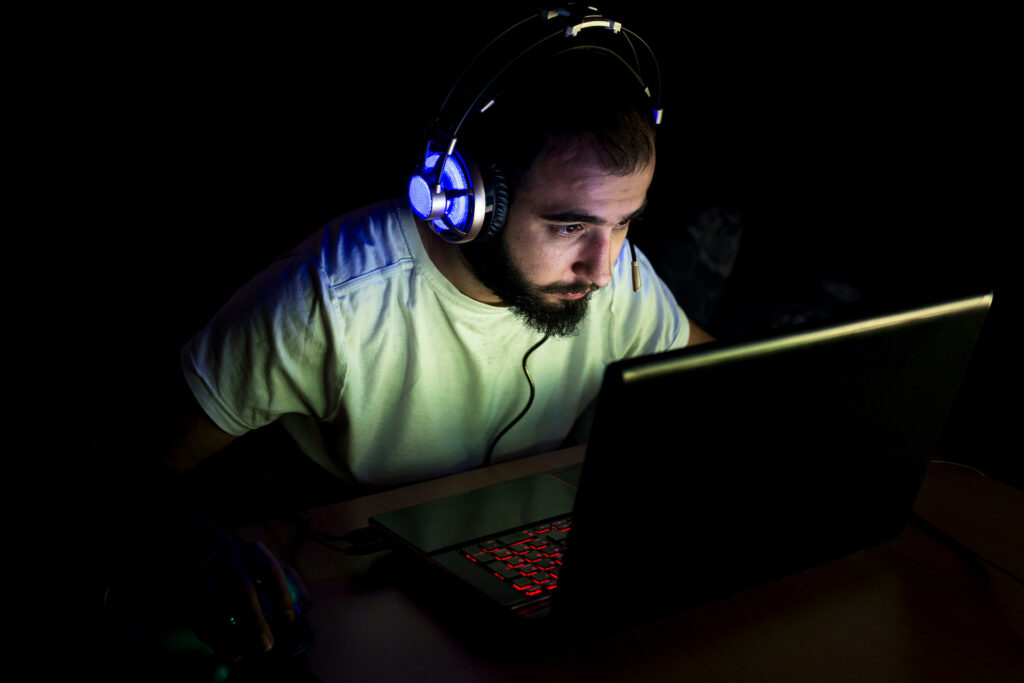Video games have come a long way since the early days of classics such as Pong or Space Invaders. But are they soothing or a distraction?
A study done in 2022 found that 53 percent of Canadians play video games regularly, averaging 7.9 hours of play per week. And if that seems high, just keep in mind that the trend seems to be steadily climbing.
It’s no surprise that video games—a.k.a. gaming—is one of the most popular forms of electronic entertainment in Canada. In today’s article, we take a look at this common pastime, focusing on games that are played for leisure rather than for gain, and explore the ways these games can both support and hinder mental well-being.
The Impact of Gaming
First things first, we’re not here to tell you to turn off your screen and go to bed. Rather, we believe the key values of maturity, authorship, and making decisions that are evidence-based.
When it comes to whether video games are supportive or harmful to mental health, the answer—like most things—is not black and white. It’s easy to demonize video games or dismiss them as a waste of time when they really could have something to offer. Likewise, it’s easy to give video games a free pass because at least it’s not drugs! And yet, we know that process addictions—such as to video games, gambling, or pornography—are very real.
So, let’s look at some of the pros and cons of video games in the context of mental health and addiction, and see how we feel in the end.
The Pros of Video Games
1. Stress Relief and Relaxation
We’ve talked a lot on our blog about the importance of reducing stress by finding pastimes and hobbies that support your wellbeing, such as making art or hiking. And indeed, many gamers report that playing video games helps them unwind after a stressful day, offering an immersive experience that makes it possible to take space from the issues and stressors in their lives. Put simply, video games can be an easy way to relax.
2. Cognitive Benefits
Contrary to the puritanical belief that video games turn the brain to jelly, studies have shown that gaming can actually enhance various cognitive functions. Metastudies from 2018 and 2023 support the idea that video games can have a positive impact on cognitive and emotional skills in relation to the healthy adult population, especially in young adults.
Similar benefits are reported in the global report “Power of Play,” published in 2023 by the industry association Videogames Europe. These studies and reports highlight the potential for video games to support skills such as problem-solving, spatial awareness, concentration, critical thinking, and multitasking through regular gameplay.

3. Social Connections
It’s no surprise that video games are a way for many people to connect socially. Even at a time when people weren’t allowed to gather due to public health measures, friends could still get together online through gaming. Indeed, online multiplayer games can foster social connections and teamwork, with players often building strong online friendships and communities, providing a sense of belonging and reducing feelings of loneliness. This can be particularly beneficial for people who might struggle to make friends in person, for a variety of reasons.
The Cons of Video Games
1. Addiction and Compulsive Behaviour
Despite its benefits, gaming can become problematic for some individuals. The American Psychiatric Association‘s Diagnostic and Statistical Manual of Mental Disorders (DSM-5-TR) includes a condition referred to as Internet Gaming Disorder (IGD) in the section recommending conditions for further research, along with caffeine use disorder and other conditions.
Meanwhile, the World Health Organization (WHO) includes gaming disorder in the 11th Revision of the International Classification of Diseases (ICD-11), recognizing “gaming disorder” as a legitimate condition characterized by impaired control over gaming, increasing priority given to gaming over other activities, and continuation or escalation of gaming despite negative consequences. However, the WHO also reports that gaming disorder affects only a small proportion of people who engage in digital or video-gaming activities.
2. Mental Health Challenges
Excessive gaming could also possibly contribute to mental health issues such as anxiety and depression. The isolating nature of prolonged gaming sessions may exacerbate these conditions for some people, and the environment of some games can lead to increased stress and frustration, particularly when players face harassment or bullying online.
3. Physical Health Concerns
Lastly, gaming for extended periods of time can lead to physical health problems, such as eye strain, poor posture, and repetitive strain injuries. Lack of physical activity can also contribute to obesity and other health issues, which in turn can affect mental well-being.

Finding Balance: Tips for Healthy Gaming
Like many things we do in life, there are ways to mitigate the negative impact of the things we enjoy. In the case of video games, moderation is key. Setting time limits on how much gaming you do in a day or a week can help prevent it from interfering with other aspects of life.
Prioritizing physical activity is also important. Regular exercise, such as hiking, can help mitigate the physical and mental health risks associated with gaming. Engaging in diverse activities can help keep gaming from becoming your only source of entertainment or social interaction.
Maintaining face-to-face social connections is also important. While online friendships are valuable, in-person interactions with the meaningful people in your life are crucial for mental health.
Video games are neither a definitive friend nor foe. They offer substantial benefits when used responsibly, but can become detrimental when overused or misused. By being intentional about how and when we play, we can make decisions that better support our mental health and wellbeing.
Sunshine Coast Health Centre and Georgia Strait Women’s Clinic are world-class centers for addiction treatment and mental health. We take an approach that recognizes the importance of the physical, psychological, social and spiritual aspects of individuals in treatment and recovery. If you or someone you know is struggling with gaming addiction or its effects on mental health, please get in touch today for a free consultation and resources.



